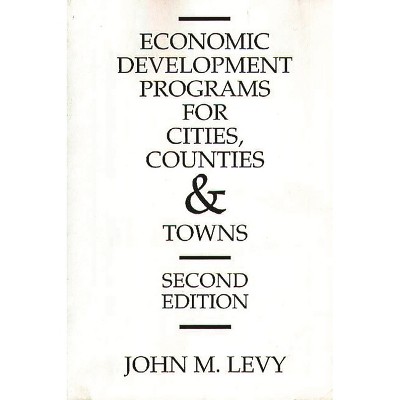Sponsored

Ecology Control and Economic Development in East African History - by Helge Kjekshus (Paperback)
$39.99
In Stock
Eligible for registries and wish lists
Sponsored
About this item
Highlights
- Ecology Control and Economic Development in East African History: The Case of Tanganyika, 1850-1950 explores a significant shift in East African historiography, particularly with the move toward political independence.
- Author(s): Helge Kjekshus
- 224 Pages
- Business + Money Management, Economic History
Description
Book Synopsis
Ecology Control and Economic Development in East African History: The Case of Tanganyika, 1850-1950 explores a significant shift in East African historiography, particularly with the move toward political independence. This change has prompted a re-examination of the African past, with an emphasis on reclaiming African agency, rejecting colonial-era interpretations that focused predominantly on European actions. Scholars like Oliver, Mathew, Kimambo, and Temu have led the way in this new wave of historiography, arguing that the African past was dynamic and that Africans were active agents in shaping their history, particularly in the face of crises such as intertribal warfare and colonial incursions. However, this study seeks to go beyond political history and traditional frameworks, shifting the focus to the ecological and economic systems that shaped African life in the 19th century. The book argues that pre-colonial East Africans were not merely responding defensively to external crises but were actively engaged in managing their environment and developing their economy. Through ecological control, such as agricultural and pastoral practices, East Africans maintained a sustainable relationship with their land, even in the face of challenges like the tsetse fly and the disruptions caused by intertribal conflict. This study challenges the prevailing notion that East Africa was economically underdeveloped due to shifting cultivation and warfare. Instead, it highlights the prosperous agricultural and cattle economies that were able to thrive despite these challenges. By examining the economic activities such as agriculture, iron smelting, and trade, the study demonstrates the region's economic vibrancy and the agency of its people in controlling their environment and developing a complex economic system. Through this approach, the study calls for a reimagined understanding of East African history that emphasizes the active role of its peoples in shaping their destiny. This title is part of UC Press's Voices Revived program, which commemorates University of California Press's mission to seek out and cultivate the brightest minds and give them voice, reach, and impact. Drawing on a backlist dating to 1893, Voices Revived makes high-quality, peer-reviewed scholarship accessible once again using print-on-demand technology. This title was originally published in 1977.Dimensions (Overall): 8.5 Inches (H) x 5.5 Inches (W) x .51 Inches (D)
Weight: .64 Pounds
Suggested Age: 22 Years and Up
Number of Pages: 224
Genre: Business + Money Management
Sub-Genre: Economic History
Publisher: University of California Press
Format: Paperback
Author: Helge Kjekshus
Language: English
Street Date: September 23, 2022
TCIN: 1006747685
UPC: 9780520347540
Item Number (DPCI): 247-22-1598
Origin: Made in the USA or Imported
If the item details aren’t accurate or complete, we want to know about it.
Shipping details
Estimated ship dimensions: 0.51 inches length x 5.5 inches width x 8.5 inches height
Estimated ship weight: 0.64 pounds
We regret that this item cannot be shipped to PO Boxes.
This item cannot be shipped to the following locations: American Samoa (see also separate entry under AS), Guam (see also separate entry under GU), Northern Mariana Islands, Puerto Rico (see also separate entry under PR), United States Minor Outlying Islands, Virgin Islands, U.S., APO/FPO
Return details
This item can be returned to any Target store or Target.com.
This item must be returned within 90 days of the date it was purchased in store, shipped, delivered by a Shipt shopper, or made ready for pickup.
See the return policy for complete information.
Frequently bought together

$8.99
Buy 1, get 1 50% off select books
5 out of 5 stars with 1 ratings
Trending Non-Fiction

$15.68
Buy 1, get 1 50% off select books
4.8 out of 5 stars with 205 ratings

Highly rated
$19.31
was $20.98 New lower price
Buy 1, get 1 50% off select books
4 out of 5 stars with 68 ratings

$18.28
was $19.58 New lower price
Buy 1, get 1 50% off select books
4.7 out of 5 stars with 17 ratings

$4.59
MSRP $7.99
Buy 1, get 1 50% off select books
4.8 out of 5 stars with 124 ratings

$6.20
MSRP $10.95
Buy 1, get 1 50% off select books
4.8 out of 5 stars with 33 ratings

$7.09
MSRP $9.99
Buy 1, get 1 50% off select books
4.9 out of 5 stars with 46 ratings










